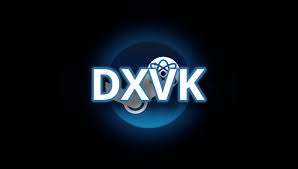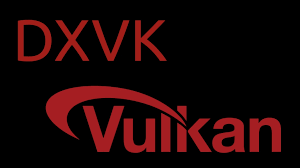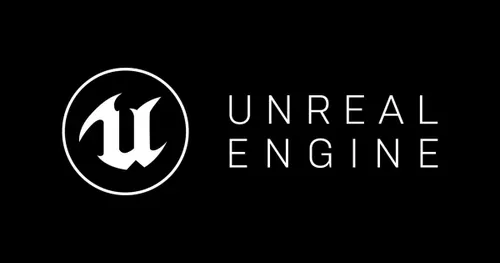DXVK has become a game-changer for Linux and Steam Deck users looking to enjoy Windows-based games with improved performance. This open-source Vulkan-based translation layer converts DirectX 9, 10, and 11 API calls to Vulkan, enabling smoother gameplay on non-Windows systems. Whether you’re a Linux enthusiast or a gamer exploring compatibility options, DXVK offers a lightweight, efficient solution to run DirectX games without needing a full Windows installation.
Understanding where to download DXVK safely and reliably is crucial for seamless integration into your gaming setup. With its growing popularity, especially among Steam Deck and Linux users, DXVK is available through various trusted sources. However, navigating repositories, builds, and installation methods can feel overwhelming without clear guidance. This article explores the best places to download DXVK, installation tips, and ways to optimize your gaming experience.
By diving into official sources, community-driven platforms, and practical setup advice, you’ll gain a comprehensive understanding of how to access DXVK. From GitHub repositories to package managers, we’ll cover secure download locations and provide actionable steps to get started. Let’s explore the world of DXVK and ensure you’re equipped to enhance your gaming performance on Linux or Steam Deck.
Official Sources for DXVK Downloads
GitHub: The Primary Source for DXVK
GitHub hosts the official DXVK repository, maintained by its developers, making it the most reliable place to download the latest stable releases. The repository includes detailed release notes, source code, and precompiled binaries for various platforms. Users can find both stable versions and cutting-edge development builds for advanced testing. Always verify the release tags to ensure compatibility with your system. Downloading from GitHub guarantees you’re getting authentic, unmodified files.
Release Pages for Stable Builds
The DXVK GitHub release page organizes stable versions with clear version numbers and changelogs. These builds are thoroughly tested, making them ideal for most users seeking reliability. Each release includes installation instructions and dependencies for Linux distributions. Check the release notes for specific DirectX or Vulkan compatibility details. This ensures you download a version optimized for your hardware and gaming needs.
Building from Source for Advanced Users
For those comfortable with compiling software, building DXVK from source offers customization. The GitHub repository provides detailed instructions for compiling on Linux using tools like Meson and Ninja. This approach allows access to the latest features not yet in stable releases. Ensure your system meets the required Vulkan and compiler dependencies. Compiling DXVK gives you control over optimizations tailored to your setup.
Package Managers for Easy DXVK Installation
- Arch Linux and Manjaro: The Arch User Repository (AUR) offers DXVK packages like dxvk-bin for precompiled binaries or dxvk-git for the latest development builds. Use an AUR helper like yay or paru to simplify installation.
- Ubuntu and Debian-Based Systems: Packages like dxvk are available through PPAs or third-party repositories. Add the WineHQ or Lutris repositories for the latest DXVK versions compatible with Wine.
- Fedora: Fedora’s RPM Fusion repository includes DXVK, installable via dnf install dxvk. This ensures seamless integration with Fedora’s Vulkan drivers.
- Flatpak and Snap: Some Linux distributions support DXVK through Flatpak or Snap for sandboxed installations. Check Flathub for DXVK-enabled applications like Lutris.
- Steam Deck: DXVK is preinstalled with SteamOS, but updates can be managed through Proton or custom package installations for specific games.
Using AUR for Arch-Based Distributions
Arch Linux users benefit from the Arch User Repository (AUR), which hosts DXVK packages for easy installation. Tools like yay or paru streamline the process, fetching dependencies automatically. The dxvk-bin package offers precompiled binaries for quick setup, while dxvk-git pulls the latest development code. Always review PKGBUILD files for security before installing. This method suits users wanting a balance of convenience and customization.
Debian and Ubuntu Repositories
Ubuntu and Debian users can access DXVK through WineHQ or Lutris repositories for stable, tested builds. Adding these repositories ensures regular updates and compatibility with Wine or Proton. Use commands like apt install dxvk after enabling the repository. Verify your Vulkan drivers are up to date for optimal performance. This approach simplifies installation for users unfamiliar with manual compilation.
Fedora’s RPM Fusion Integration
Fedora’s RPM Fusion repository provides DXVK packages tailored for Fedora systems. Install DXVK using dnf install dxvk, which handles dependencies like Vulkan libraries automatically. This method ensures compatibility with Fedora’s driver stack and updates. Check RPM Fusion’s documentation for enabling the repository if not already active. It’s a hassle-free option for Fedora users seeking reliable DXVK integration.
DXVK for Steam Deck Users
Preinstalled DXVK with SteamOS
Steam Deck comes with DXVK preintegrated into SteamOS, powering Proton to run Windows games seamlessly. Valve maintains DXVK updates through SteamOS patches, ensuring compatibility with the latest titles. Users rarely need to download DXVK separately unless testing experimental builds. Check Steam’s compatibility settings for games to confirm DXVK is enabled. This setup makes gaming on Steam Deck plug-and-play for most titles.
Updating DXVK on Steam Deck
While SteamOS handles DXVK updates, advanced users can install custom versions for specific games. Tools like ProtonUp-Qt allow downloading newer DXVK builds from GitHub. Install these through the Steam Deck’s desktop mode for flexibility. Always back up your configuration before modifying DXVK to avoid compatibility issues. This approach is ideal for optimizing performance in demanding games.
Compatibility with Proton Versions
DXVK works closely with Proton, Valve’s compatibility layer for Steam. Different Proton versions bundle specific DXVK releases, impacting game performance. Use Proton Experimental for cutting-edge DXVK builds or stick with stable Proton versions for reliability. Check Steam’s Proton settings to switch versions per game. Understanding Proton-DXVK compatibility helps troubleshoot issues and maximize frame rates.
Community-Driven Platforms for DXVK
- Lutris: This gaming platform integrates DXVK for Wine-based game installations, downloadable via its client. Lutris scripts often include DXVK for optimal performance.
- ProtonDB: While not a download source, ProtonDB offers community insights on DXVK compatibility for Steam games, guiding users to the right versions.
- WineHQ: WineHQ’s repositories include DXVK for use with Wine, ensuring easy access for non-Steam games.
- Flathub: Flathub hosts DXVK-enabled applications like Lutris or Heroic Games Launcher, ideal for sandboxed environments.
- Reddit and Forums: Communities like r/linux_gaming share custom DXVK builds and installation tips, often linking to trusted sources.
Lutris for Streamlined DXVK Setup
Lutris simplifies DXVK installation by bundling it with game-specific Wine configurations. Download Lutris from its official site or Flathub, then select a game installer that includes DXVK. The platform handles dependencies and version selection, making it beginner-friendly. Check Lutris scripts for DXVK version details to ensure compatibility. This is perfect for users managing multiple games across platforms.
ProtonDB Community Resources
ProtonDB isn’t a direct download source but provides valuable DXVK-related insights. Users share game-specific settings, including recommended DXVK versions for optimal performance. Search for your game on ProtonDB to find community-tested configurations. This helps identify whether a custom DXVK download is necessary. It’s a go-to resource for Steam Deck and Linux gamers troubleshooting compatibility.
WineHQ for Non-Steam Games
WineHQ offers DXVK through its repositories, ideal for running non-Steam Windows games on Linux. Add the WineHQ repository to your distribution, then install DXVK alongside Wine. This ensures compatibility with games not supported by Proton. Regularly update WineHQ packages for the latest DXVK improvements. It’s a reliable choice for users exploring beyond Steam’s ecosystem.
Verifying DXVK Downloads for Safety
- Check Hashes: Official DXVK releases on GitHub include SHA256 or MD5 hashes. Verify these using tools like sha256sum to ensure file integrity.
- Use Trusted Mirrors: Stick to GitHub, WineHQ, or RPM Fusion to avoid tampered files from unofficial sources.
- Read Release Notes: Ensure the DXVK version matches your system’s Vulkan and driver requirements to prevent issues.
- Avoid Unverified Sites: Third-party download sites may host outdated or modified DXVK files, risking security.
- Community Feedback: Check forums like r/linux_gaming for reports on specific DXVK builds before downloading.
Checking File Hashes for Authenticity
Verifying file hashes ensures your DXVK download hasn’t been altered. GitHub release pages provide SHA256 or MD5 checksums for each file. Use a terminal command like sha256sum dxvk.tar.gz to compare hashes. Mismatched hashes indicate a corrupted or tampered file. This step is critical for maintaining system security, especially when downloading from mirrors.
Avoiding Unofficial Download Sites
Unofficial websites may offer DXVK downloads but pose risks of malware or outdated versions. Always prioritize GitHub, WineHQ, or distribution-specific repositories like RPM Fusion. These sources are vetted by developers and communities, ensuring safety. Cross-check URLs to avoid phishing sites mimicking official pages. Sticking to trusted platforms protects your system and gaming experience.
Community Feedback for Safe Downloads
Linux gaming communities, such as r/linux_gaming or Phoronix forums, share feedback on DXVK builds. Users often report issues or confirm safe sources for specific versions. Before downloading, search these platforms for discussions on the release you’re considering. This helps avoid problematic builds and ensures you’re using a trusted source. Community insights enhance download safety.
Troubleshooting DXVK Installation
Common Installation Errors
DXVK installation may fail due to missing Vulkan drivers or incompatible dependencies. Ensure your GPU drivers (NVIDIA, AMD, or Intel) support Vulkan by checking with vulkaninfo. Update your Mesa or proprietary drivers to the latest version. Misconfigured Wine or Proton settings can also cause issues—verify paths and environment variables. Consult DXVK’s GitHub issues page for specific error solutions.
Game-Specific Compatibility Issues
Some games may exhibit graphical glitches or crashes with DXVK. Check ProtonDB or Lutris for game-specific DXVK settings, such as disabling certain shaders. Switching between DXVK versions or using Proton Experimental can resolve issues. Log files from Wine or Proton provide clues for troubleshooting. Adjusting game settings, like lowering anti-aliasing, often improves DXVK performance.
Updating Drivers for DXVK
Outdated GPU drivers can hinder DXVK performance, causing low frame rates or crashes. Update NVIDIA drivers via your distribution’s package manager or NVIDIA’s official site. For AMD and Intel, ensure Mesa drivers are current using tools like apt or dnf. Verify Vulkan support with vulkaninfo after updates. Keeping drivers fresh ensures DXVK runs smoothly across games.
Conclusion
Finding reliable sources to download DXVK empowers Linux and Steam Deck gamers to enjoy Windows titles with enhanced performance. From GitHub’s official repository to package managers like AUR and RPM Fusion, accessing DXVK is straightforward with the right guidance.



